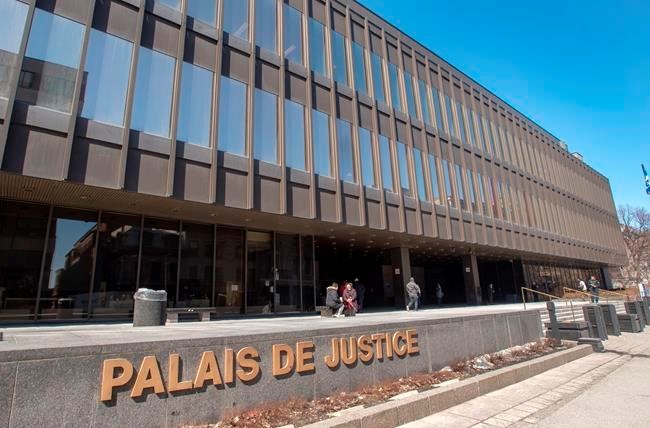MONTREAL — A Quebec Superior Court judge has ruled that a man can never again try to claim paternity of a child he fathered during a sexual assault.
Justice Carl Lachance ruled this week that the man must also pay more than $155,000 to support the child until adulthood.
"The defendant is not worthy to be recognized as the father of this child," the judge wrote in the decision dated Thursday.
The ruling states that the man, whose name is redacted, sexually assaulted the child's mother in 2019 when she was 17, resulting in her becoming pregnant and giving birth in 2020. Her assailant was arrested and later received a 63-month prison sentence after pleading guilty to several charges.
After a judge ordered a DNA paternity test against her will in 2022 that showed a genetic match, the child's mother went to court to obtain a declaration that the man not be recognized as the father.
A media report on the case prompted the Quebec government to table legislation permitting a mother who is the victim of sexual assault to refuse parental rights to her assailant, or to have them revoked. That law came into effect last June.
In his decision, Lachance wrote that it's not in the best interest of the child to allow the man to seek parental recognition given his violent actions, his criminal history, and what his parole reports have deemed a high risk to reoffend.
The judge said granting paternity to the man would force the mother to have contact with him in order to arrange visitation or make decisions requiring parental authority, which he said would be "unbearable."
The man withdrew his paternity claim in November, which the judge deemed a "strategic attempt" to leave the door open for future claims.
"We cannot condone nor tolerate that the assailant uses a procedural technique to escape an unfavourable result in the hopes of being able to take it up again later," he wrote, adding that the possibility of a future claim had left mother and child with a "sword of Damocles" hanging over their heads.
He ruled that the man could never "at his own initiative" seek to be recognized as the father, although he said it would be possible for the child to make the request when older.
The woman's lawyer, Jean-Maxim LeBrun, said his client is happy with the decision, which will allow her to turn the page.
"A lot of her life projects were on standby waiting for this, and I think this is going give her the ability to really start the next chapter in her life, and I think she's thrilled about that," he said in a phone interview.
He said the decision also provides an important precedent in upholding the new Quebec legislation, and sends an important signal that courts are taking sexual assault seriously.
"The ordeal of getting through the hearings and the process is difficult enough that if the message the legislators can send to these victims is that the legal system is here to help you .... I think that's a very strong message for these women," he said. He noted that at one point in the proceedings, his client had to face her assailant, who had been granted parole, in court.
The lawyer listed on the court documents as representing the man did not immediately respond to a question about whether he intends to appeal the decision.
This report by The Canadian Press was first published Feb. 17, 2024.
Morgan Lowrie, The Canadian Press




